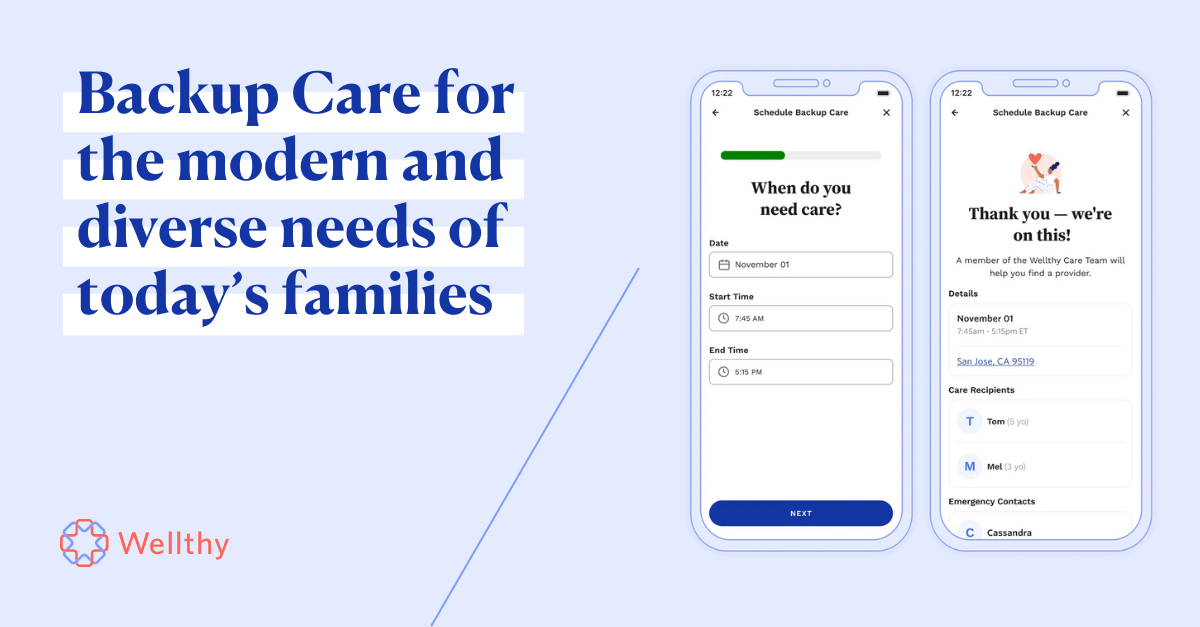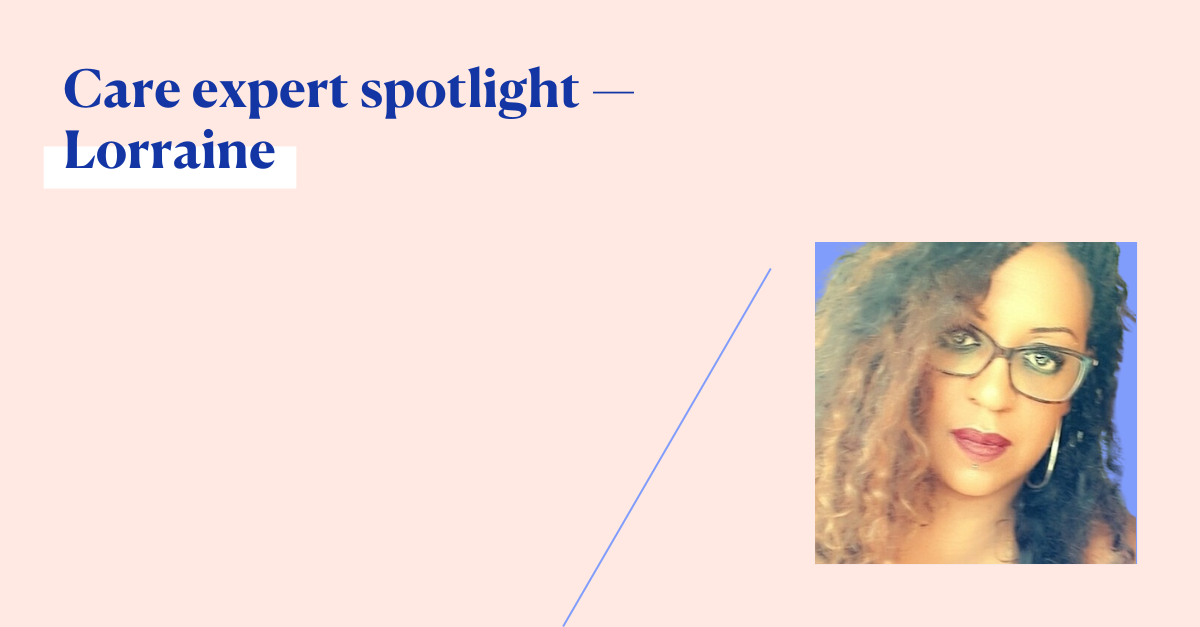With our Care Expert Spotlight series, we’re taking a peek into the lives of Wellthy's amazing care professionals.
This month we spoke with Elizabeth, a Care Coordinator who works with vulnerable populations, mental health, and families navigating situations involving substance use. Wellthy’s team of Care Coordinators and Advisers work directly with families to understand their care needs, create a care plan, prioritize tasks, and get things done on their behalf.
Elizabeth is also a Moderator for Wellthy Community, a peer support network for Wellthy members allowing family caregivers to connect with each other online. For more information on Wellthy Community, check out this post.
What is your background in?
I have worked at Wellthy for about three years now, both as a Care Adviser and Coordinator. In my professional background, I’ve focused on working with populations dealing with homelessness, substance use, domestic violence, and mental health issues.
What is your personal caregiving story?
I currently take care of my younger sister. I’ve been taking care of her since she was a baby – helping take her to school, making sure she completed her homework. A few months ago, she moved in with me and I am now her legal guardian until she turns 18. So I’m helping her through the process of transitioning into college and adult life.
At the same time, I provide long-distance care to my parents. Both of them are in their 70s and are still pretty independent. I mostly help maintain their house and take care of small tasks that they can’t do themselves.
How does your background make you a better Care Coordinator at Wellthy?
A lot of what I used to do was helping people through application processes for things like shelters and immigration. I came to Wellthy because I felt limited in how I could help people in my previous role. For example with immigration cases, I couldn't help the people who came to us find attorneys, even though that’s what they really needed. So I came to Wellthy because I find that I’m much more equipped to help those who need that extra support.
How does Wellthy support cases involving substance use disorder?
I’ll automatically share a list of resources like help lines, so they have those readily available. Then I’ll hop on a call to try to see where they’re at, what they need immediately, and guide them through what they might not even know they need.
The main thing that family members need to understand is that if your loved one isn't open to receiving help, it’s going to be very difficult to give them help. I can share plenty of resources and find outpatient treatment centers and facilities, but if they don’t want to take advantage of those things, then it becomes really difficult. You can force them to do those things, but if they aren’t bought in, then they’re more likely to go back to their old habits after time at a treatment center.You can still be there to support them, even if they don't want the assistance. In these cases, I can still help by connecting you to support groups (for you and the person you’re caring for) and finding treatment centers so that when the day comes that your loved one is ready to accept help, you don’t have to start your facility search then. We can also help find rehabilitation facilities, verify insurance coverage, locate support groups, and find psychiatrists or other doctors.
What are some realistic ways that caregivers can prioritize their own mental health?
I used to be really bad about this – taking care of myself sounded so nice, but I never had the time to do it. Over the years, I’ve realized that for me, taking care of my mental health shows up in the setting of boundaries.
I also try to recognize at the end of the day that I’m just one person. I’m not Wonder Woman, and I can’t help everyone all the time. If I don’t take care of myself, how can I begin to take care of others?
Think about things that you used to enjoy, and then find a way to incorporate that thing back into your life again. If you enjoy reading books, find 15-20 minutes per day to read a book. If you love music, listen to it while washing dishes or while you shower – start with any little thing that you can do that doesn’t take too much time, and prioritizing your own mental health will feel less daunting.
Do you have a favorite moment from working with a member?
I worked with a woman who took three months of leave from her job to take care of her husband with Parkinson’s. She was his sole caretaker and was struggling with her own health problems as well. The supports in her area were very limited, so I had to think outside the box to find resources that weren’t immediately obvious. After some digging, I was able to find a skilled nursing facility that would take him, allowing her to go back to work fulltime. This was a big stress relief for her because she was the sole breadwinner. I’m so involved in her care to the extent that she loops me into all communications with the staff at her husband’s skilled nursing facility.
How does someone know if it’s time to ask for help?
When you realize just how overwhelmed you are. I’ve gotten to the point before where I couldn’t get out of bed. At that moment, I thought, “Oh my gosh, I’m working so hard that even my body is telling me I need to rest.” It was a wakeup call for me.
You don’t want it to get to that point, but it’s hard to ask for help, right? You don’t want to seem like a burden and take time away from other people. So, try to identify those people in your life who are willing to assist you when you need it and ask them how they want you to ask for assistance. For example, would they be fine with you sending a text message asking them to pick up groceries on the way home, or would they prefer you send them a detailed grocery list? It could even be that you always have the grocery list on the fridge – whenever that person has some spare time, they know where to find the list and go to the store.
This tends to reduce some of the frustration because if you know exactly how that person is able to help you, then you can craft your ask for them in a way that you know will resonate well with them.
What can a caregiver do now to set themselves up for success in the future?
If you’re a parent, make sure that your own future is set so that when your children get older, they don’t have to figure things out like finances, long term care insurance, and what your end of life wishes are.
If you’re an adult taking care of aging parents, try thinking about what else could potentially come up ahead. That way, you could locate resources now, like community support, so that you know where to go in the event that an emergency, a fall, or an accident happens.







